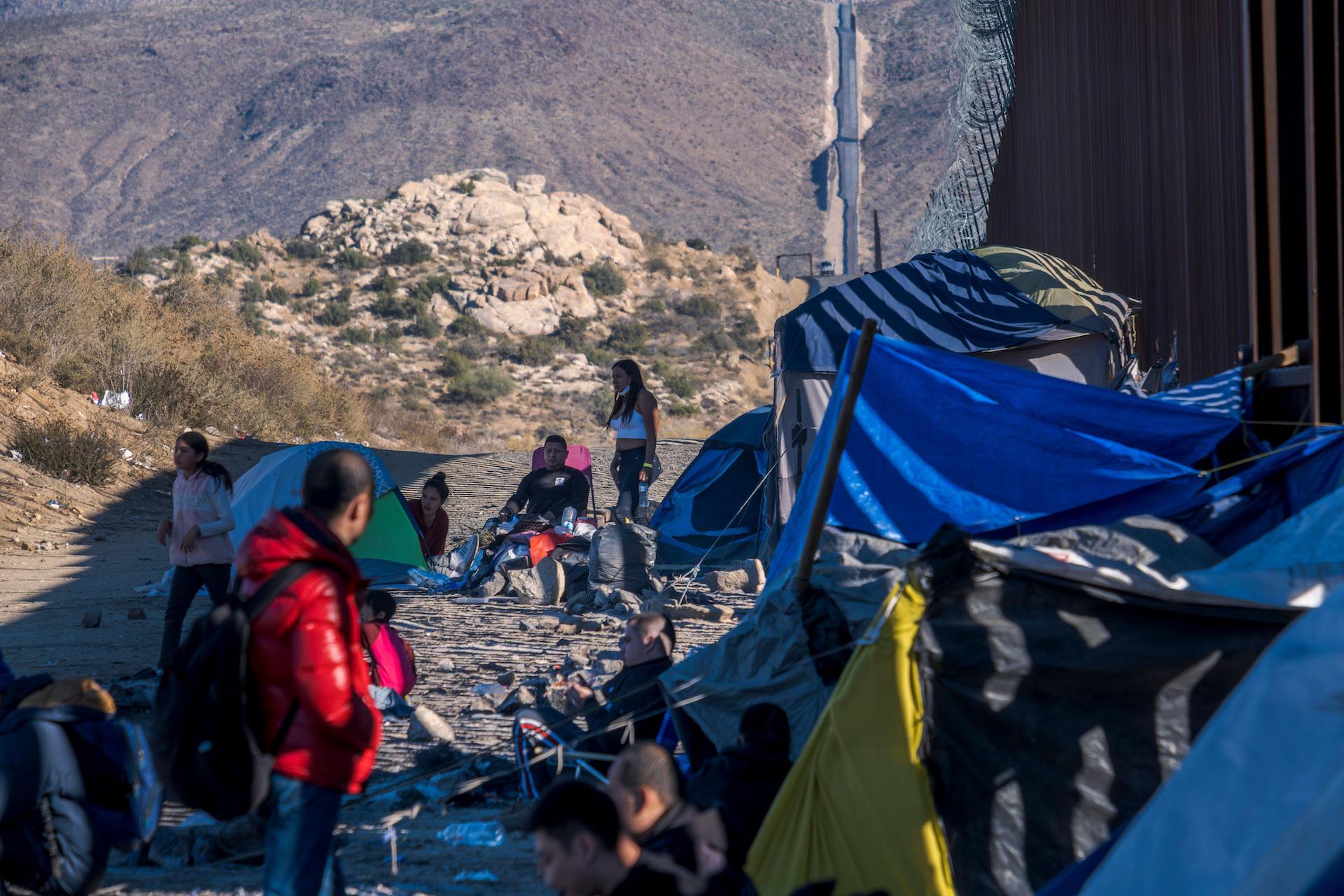 Photo by Matthew Bowler/KPBS/Sipa USA/Alamy Stock Photo
Photo by Matthew Bowler/KPBS/Sipa USA/Alamy Stock PhotoPresident Joe Biden’s directive temporarily closes the border to asylum seekers until the seven-day crossing averages decrease.
President Joe Biden signed an executive order Tuesday, effectively shutting down the border and blocking asylum seekers from entering the United States.
The measure — considered the most restrictive border policy implemented by a modern Democratic president — came after Senate Republicans and six Democrats blocked a bipartisan border agreement. The Biden-backed bill included reduced border crossings and called for increased requirements for asylum seekers.
News that puts power under the spotlight and communities at the center.
Sign up for our free newsletter and get updates twice a week.
Under the new directive, the border has been temporarily closed. Borderless explains what the new order means for asylum seekers.
What does the executive order say?
Biden’s new border restrictions currently prevent asylum seekers from entering the United States. The order is triggered when the seven-day average of people seeking asylum exceeds 2,500.
Migrants seeking protection will be restricted from applying for asylum. Those who cross the border without authorization will not be eligible for asylum and will be subject to removal. Anyone who crosses during this period could face a five-year ban from re-entry and criminal prosecution, according to the Associated Press.
Biden cited the Immigration and Nationality Act – the same law former President Donald Trump used for his Muslim Travel ban in 2017, and again in 2018, to suspend the right for migrants to petition for asylum.
Are there any exceptions to the directive?
The order includes exemptions for certain groups like unaccompanied migrant children and victims of trafficking. Under this order, permanent residents and other noncitizens with valid visas are still permitted to enter the country.
When will these restrictions be lifted?
The directive will end after the daily average falls below 1,500 between official ports of entry. This is the number the Biden Administration has deemed “low enough for America’s system to safely and effectively manage border operations.”
Read More of Our Coverage
Why did this order take effect?
Earlier this year, the Biden Administration announced a bipartisan agreement with Senate Democrats and Republicans that would increase immigration personnel, add technology to detect fentanyl and give the president the power to close the border when the system is overwhelmed. Biden moved forward with his executive action after Senate Republicans and some Democrats blocked the bill for a second time.
During Tuesday’s announcement, Biden urged Congress to take action to increase funding and bolster border security. “Frankly, I would have preferred to address this issue through bipartisan legislation, because that’s the only way to actually get the kind of system we have now — that’s broken — fixed, to hire more Border Patrol agents, more asylum officers, more judges,” Biden added.
Will this executive order face legal challenges?
The American Civil Liberties Union (ACLU) likened Biden’s executive order to Trump’s actions while in office. Following the announcement, the organization announced it would challenge the order in court.
How has the public reacted to the order?
Biden’s executive order was met with condemnation from immigrant rights organizations and politicians on both sides of the political spectrum. U.S. Rep. Jesús “Chuy” García issued a statement calling the policy Biden’s “most restrictive border policy yet.”
“This is not an easy situation,” García wrote. “Border communities and welcoming cities like Chicago are struggling to get the federal resources they need as migrants continue to arrive. Instead of enacting cruel and ineffective policies, we must remain committed to creating a fair and humane asylum system that welcomes people who come to our country seeking safety, security, and a better life.”
President and CEO of the Latino Policy Forum, Sylvia Puente, echoed García’s sentiment.
“We want this administration to honor our asylum laws and implement commonsense solutions that respect human rights, such as work permits for the long-term undocumented, not ineffective border policies such as today’s executive order.”
Mayor Brandon Johnson sided with Biden, calling on Congress to work with the president to pass comprehensive immigration reform that offers solutions for Dreamers, spouses of American citizens and long-time workers.
“It is time for Congress to finally work with President Biden to pass comprehensive immigration reform, and create fair and functional policies for our country.”

